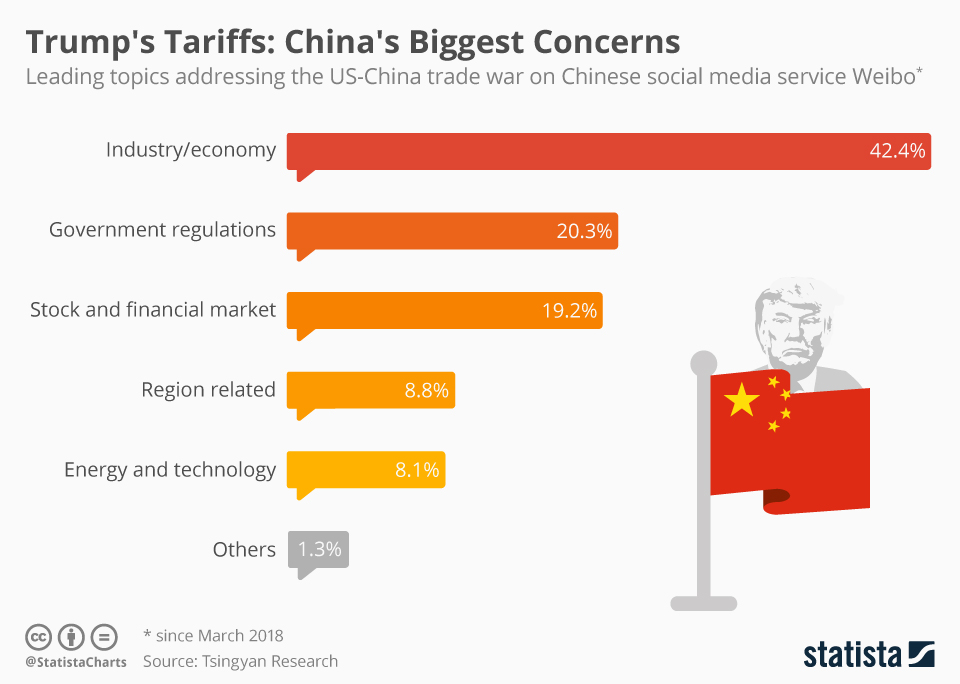Senator Warner On Trump's Trade Policy: Tariffs As Leverage

Table of Contents
Senator Warner's Stance on Tariffs as a Negotiating Tool
Senator Warner has consistently voiced concerns about the Trump administration's reliance on tariffs as a primary negotiating tool. He argues that this approach, while appearing strong-armed, ultimately harms the US economy and weakens international relationships. His viewpoint centers on the belief that tariffs are a blunt instrument, causing unintended and often damaging consequences.
- Increased costs for American consumers: Tariffs increase the price of imported goods, directly impacting consumers' wallets and reducing their purchasing power. This inflationary effect disproportionately affects lower-income households.
- Retaliatory tariffs from other countries: The imposition of tariffs often provokes retaliatory measures from other nations, escalating trade disputes and harming US exporters. This tit-for-tat exchange can severely disrupt established trade relationships.
- Damage to US businesses and industries: American businesses reliant on imported materials or exporting goods face significant challenges due to tariffs. Increased costs and reduced market access can lead to job losses and reduced competitiveness.
- Disruption of global supply chains: Tariffs disrupt established global supply chains, leading to delays, shortages, and increased uncertainty for businesses. This complexity adds to the overall economic instability.
- Use of alternative diplomatic strategies: Senator Warner advocates for a more nuanced approach to trade negotiations, emphasizing diplomacy, collaboration, and the pursuit of mutually beneficial agreements. He believes that a reliance on tariffs undermines the credibility of the US in international trade negotiations.
Economic Consequences of Trump's Tariff Policy
The economic impact of Trump's tariff policy has been a subject of intense scrutiny. While some argue that tariffs protect domestic industries, numerous studies point to significant negative consequences.
- Impact on specific industries: Sectors like agriculture and manufacturing experienced both positive and negative impacts. While some domestic producers benefited from reduced competition, many faced increased input costs and retaliatory tariffs.
- Job losses and gains resulting from tariffs: While some jobs may have been created in certain sectors, studies suggest that job losses in export-oriented industries and those reliant on imports significantly outweighed any gains.
- Changes in consumer prices due to tariffs: Consumer prices for various goods increased as a direct result of tariffs, impacting household budgets and potentially reducing overall consumer spending.
- Analysis of trade deficits before and after tariff implementation: Data reveals that while some trade deficits decreased in specific areas, the overall effect on the US trade balance was not significantly positive and in some cases even worsened. This illustrates the complexities of managing trade balances through tariffs alone.
Alternative Approaches to Trade Negotiations
Senator Warner and other trade experts advocate for alternative strategies to resolve trade imbalances and improve trade relationships. These approaches prioritize diplomacy and collaboration over confrontation.
- Emphasis on multilateral trade agreements: Participation in and strengthening of multilateral trade agreements like the World Trade Organization (WTO) provide a framework for resolving disputes and promoting fair trade practices.
- Focus on strengthening existing trade relationships: Investing in existing trade partnerships through negotiation and dialogue fosters stronger and more stable relationships, avoiding the pitfalls of unilateral tariff imposition.
- Prioritization of diplomatic solutions and negotiations: Diplomatic efforts and negotiations provide a platform for addressing concerns and finding mutually acceptable solutions, reducing the risk of trade wars.
- Investments in domestic industries to improve competitiveness: Investing in research and development, infrastructure, and worker training enhances the long-term competitiveness of domestic industries, reducing reliance on protectionist measures.
Comparison with Other Trade Experts' Opinions
The debate surrounding Trump's tariff policy is not limited to Senator Warner. Many economists and trade experts have offered diverse perspectives. Some argue that tariffs can be effective in specific circumstances, while others, like Senator Warner, highlight their potential negative consequences. There's a broad consensus that tariffs are a complex tool with potentially harmful unintended consequences if not carefully implemented. Bipartisan opposition exists, reflecting the widely acknowledged difficulties presented by this approach.
Long-Term Effects and Lasting Impacts of Trump's Tariff Policy
The long-term impacts of Trump's tariff policy remain uncertain but carry the potential for lasting damage.
- Potential for long-term damage to international relationships: The use of tariffs has strained relationships with key trading partners, creating uncertainty and mistrust.
- Shift in global trade patterns and alliances: Tariffs have the potential to reshape global trade patterns, potentially leading to new alliances and rivalries.
- The lasting effects on specific industries and sectors: Some industries may permanently lose competitiveness due to disrupted supply chains and retaliatory tariffs.
- The potential for future trade conflicts: The use of tariffs as a primary negotiating tool sets a precedent for future trade conflicts, undermining global stability.
Conclusion
Senator Warner's consistent criticism of President Trump's reliance on Senator Warner Trump Tariffs highlights the complex economic and geopolitical ramifications of protectionist trade policies. He argues convincingly that tariffs are an inefficient and ultimately damaging tool, leading to increased costs for consumers, retaliatory measures from other countries, and disruption of global supply chains. Alternative strategies, prioritizing diplomacy and multilateral agreements, offer a more sustainable and effective approach to trade negotiations. Understanding Senator Warner's perspective on the use of Senator Warner Trump Tariffs is crucial for informed engagement in the ongoing debate about effective trade policy. Further research into his stances and the broader economic implications of protectionist measures is encouraged.

Featured Posts
-
 The Space X Surge Musks Stake Now 43 Billion Greater Than Tesla Investment
May 10, 2025
The Space X Surge Musks Stake Now 43 Billion Greater Than Tesla Investment
May 10, 2025 -
 Reactions Young Thug On The Not Like U Track And His Recent Release
May 10, 2025
Reactions Young Thug On The Not Like U Track And His Recent Release
May 10, 2025 -
 Family Left In Ruins Following Senseless Racist Murder
May 10, 2025
Family Left In Ruins Following Senseless Racist Murder
May 10, 2025 -
 Nouveau Vignoble A Dijon 2 500 M Plantes Aux Valendons
May 10, 2025
Nouveau Vignoble A Dijon 2 500 M Plantes Aux Valendons
May 10, 2025 -
 Shippers Question Trumps Announced Truce With Houthis
May 10, 2025
Shippers Question Trumps Announced Truce With Houthis
May 10, 2025
